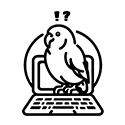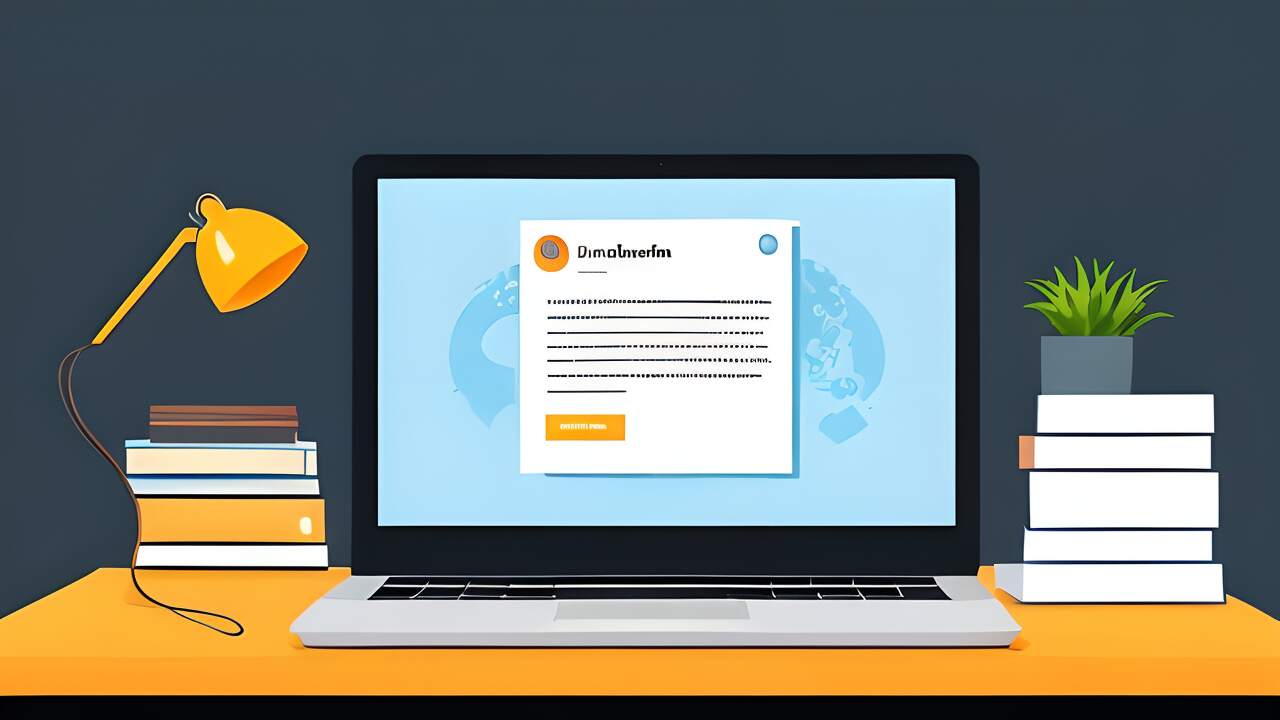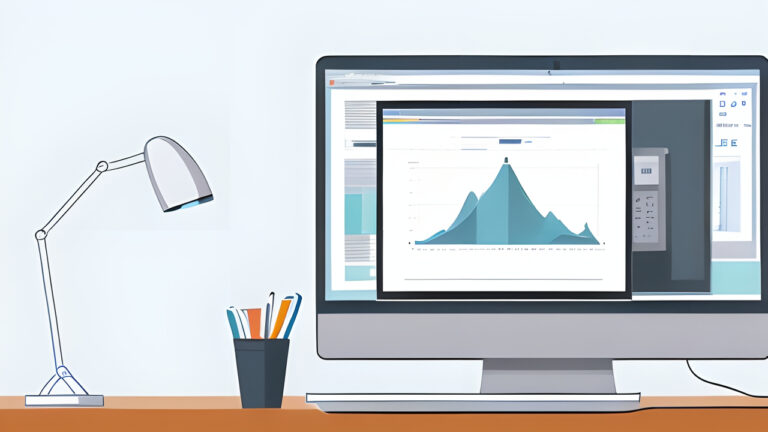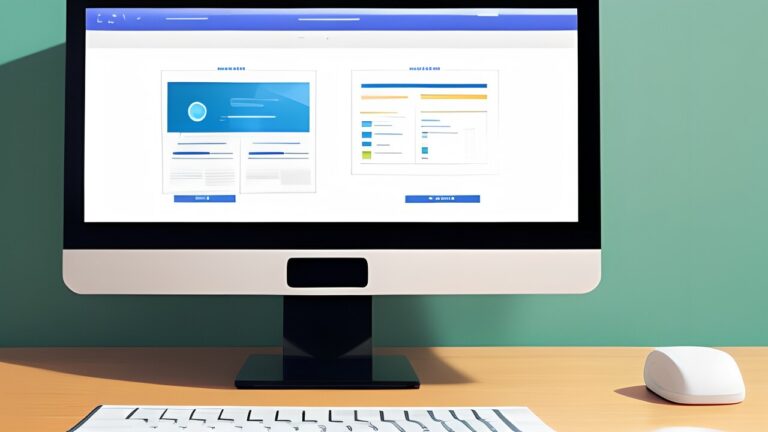How to Pick a Blogging Platform Without Losing Your Mind
So, you’re starting a blog—congrats! Now comes the hard part: choosing where to host it, what blogging platform to put it on and hope everything goes well.
As you may know, us humans, like shiny things and want the best for our business. You may have already search “Best Blogging Platforms in 2024” and saw hundreds of different ways to publish your articles.
However, it might not be a secret for you, but for the sake of the other visitors, most of the article you read missed criticals questions that you need to answer before choosing a blog platform.
Now, if you’re feeling a little confused or overwhelmed, don’t worry. By the end of this post, you’ll know what to consider before picking a blogging platform, and no, I won’t bore you with a list of platforms.
That’s a topic for another day. But between you and me I’ll tell you to pick WordPress because it gives you the ability to scale however you want.
Before you start blogging, you need somewhere to keep your blog posts
Why Does It Even Matter?
It matters beccause the platform you choose is like picking where you’re going to live. A studio apartment? A cozy house? Or a mansion with a pool and a personal chef?
You want to create a unique website, but don’t have the technical skills to do it in a reasonnable period of time.
Or maybe you know how to create a website from scratch, but do you really need to do it that way?
Your choice depends on what you need, and more importantly, what you can handle.
Let’s make sure you pick the platform that’s right for you without pulling your hair out later.
1. Know What You Want (and Don’t Want)
What’s Your Blog’s Purpose?
Before diving into the blogging platforms pool, let’s figure out what you want from your blog.
Are you looking to share your life’s adventures?
Or maybe you want to start a money-making empire (go, you!).
If you’re just doing this for fun, you won’t need all the bells and whistles. But if you plan to monetize or grow big, you might need something a little more robust. It’s like buying a car—do you need a simple sedan, or are you eyeing that sleek sports car or the SUV for a bit of both?
Short-Term vs Long-Term Goals
Be honest with yourself: Where do you see your blog in a year? Five years?
If your answer is “I have no idea“—that’s okay! But if you think you’ll need more advanced features down the road, make sure your platform won’t limit you later on.
This is where S.M.A.R.T goals come into play. Set your expectations right the first time.
If you’re serious about business, maybe it’s a good idea to look beyond the “now” and look into the “future”.
Unsolicited Tip: Don’t say you’ll start learning code so you can maintain your website later and pick the hardest way to create blog. Start with the basic and change as it comes.
2. How Tech-Savvy Are You?
Be Real About Your Skills
Some blogging platforms are easy—like using a microwave. Pop your content in, press a button, and voila, it’s done! Others?
They’re more like building IKEA furniture. Sure, the end result is pretty cool, but you’ll be scratching your head for hours.
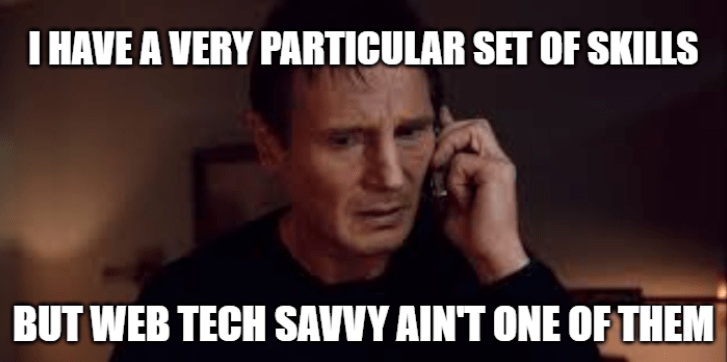
If you can barely handle basic computer stuff, don’t stress yourself with a platform that feels like a tech boot camp. You want to blog, not spend all day Googling “how to install a plugin.”
And honestly… it’s okay if you don’t have time to deal with the tech part of a blog. You just have to be clear with your goals and think about the future. There’s plenty of options that don’t require a lot of knowledge, but it is worth to understand the basics.
3. The Money Question, Should you pay for a blog platform?
Free or Paid?
Who doesn’t love free stuff, right? But here’s the catch: free platforms usually come with limits—like ads all over your blog, a domain name that looks like mycoolblog123.wordpress.com, and fewer customization options. Basically, you get what you pay for.
If you’re serious about your blog, investing a little money upfront can go a long way. Think of it like this: if you’re going to open a coffee shop, would you do it in your garage? Probably not. Sometimes, you gotta pay for the real deal.
Hidden Costs, Baby!
Even if you go for a “free” platform, keep in mind there are other sneaky costs—like paying for a custom domain, fancy themes, or additional features. It’s like going to a buffet, thinking you’re getting a deal, but the drinks cost extra.
From experience, the ease of use sometime comes with the paid options. Why? Simply because it was developp this way giving you features to make your journey smoother.
4. Do You Like Being in Control? (I’m Looking at You, Control Freaks)
Who Owns Your Blog?
Some platforms make you feel like the boss. You own your content, you control the design, and you can leave whenever you want. Others? Eh, they’re more like renting an apartment—you’ve got some freedom, but there are restrictions, and your landlord could kick you out anytime.
If you want to have complete control over your blog (especially if you plan on making money from it), make sure the platform gives you the freedom to do what you want.
Always ask if one day your blog platform go out of business or have a massive outage. What will you do. How will it affect business? Will you have support?
Custom Domain vs. Subdomain
Having a custom domain (yourname.com) just looks cooler, doesn’t it? It also makes your blog easier to remember and more professional if you plan on building a brand. Free platforms often give you a subdomain (yourname.theirsite.com), which works at the start, but it might feel limiting down the road.
Some hosting offers a free domain name when purchasing a plan. Think about it.
From experience, buy a custom domain but think about it before. Nothing is more frustrating than purchasing quickly a domain and realising it is used everywhere or worst there’s a mistake in the name.
5. How Important Is the Look and Feel of Your Blog?
Customization Levels
Some platforms let you design your blog like you’re playing with Lego blocks. Drag and drop, easy peasy. Others give you the freedom to code and tweak everything if you want that level of control (good luck if you don’t know a thing about coding).
If you want a unique blog that screams you, make sure your platform lets you play around with the design without making you want to cry.
We all love a good Ol’ Plug and Play and forget. But the thing is, if you want you blog to reflect your image and goals, you will have to customize it.
The first thing I look when choosing a WordPress theme is the customization features and freedom. I don’t want to code, learn CSS or HTML right now, I wan’t to blog.
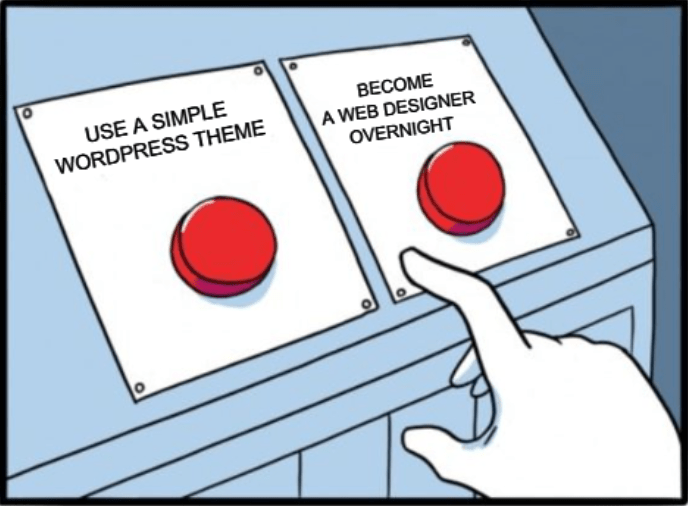
Themes and Plugins
If you’re planning to grow, adding functionality like email lists, e-commerce, or even simple things like contact forms might become a big deal. A platform with lots of plugin options can save you headaches later on.
But at the same time, a platform with too many options can be a real pain and slow down you website.
6. People Need to Find You! (SEO, Baby)
Why SEO Matters
Let’s not get too nerdy, but Search Engine Optimization (SEO) is what helps people find your blog when they’re googling stuff. Some platforms come with built-in SEO features, making it easier for your blog to rank on Google. Others, not so much.
If you care about people actually reading your blog (and not just your mom), pick a platform that has SEO tools baked in.
I’ve been doing SEO for over a decade now and no amount of tools will make you rank by itself. It’s more like a guide than a mandatory thing to do.
RankMath – More than a Plugin
SEO doesn’t have to be hard, especially if you are new to blogging. That’s why RankMath exist. It’s simple, easy to use and you save time. Get started now and try the free demo.
However, you can choose a blog platform that allows you direct customization of SEO features or even a built-in SEO tool. WordPress have some plugins, but if you choose otherwise, check if the platform have one.
Now, don’t freak out and purchase every SEO training and conference you can find. The truth is that SEO copywriting is quite easy when you understand the underlying concepts. Lucky you, I’ll be publishing a lot of content about it.
7. Support and Community—Because We All Need a Little Help Sometimes
What Happens When Things Go Wrong?
No matter how techy or non-techy you are, something will go wrong at some point. Trust me. Platforms with good support are like having a superhero hotline. Others leave you screaming at your screen alone. Take WordPress, a well-knit community that helps the creators of themes and plugins, but also users who want to start a blog.
Support is also important for:
- The plugins you choose
- The WordPress them you pick
- The Web hosting plan
- Etc.
Make sure there’s a support team or at least a helpful community when (not if) you run into issues. Do you like emailing support, or would you rather join a forum and get answers from fellow bloggers?
If you are a beginner, support is really important as you need to rely on others to help you debug your website or make it better.
8. Think About the Future, My Friend
Will This Platform Grow with You?
The blogging world changes faster than TikTok trends, so you want a platform that can keep up. Today’s basic blogging platform might need an upgrade when you want to sell stuff, create membership areas, or launch an email newsletter.
Migration Options (Don’t Get Stuck!)
Let’s say you outgrow your platform. Is it easy to move to a new one? Some platforms make it easy to pack your bags and leave. Others? Not so much. You don’t want to find yourself stuck in a digital jail if you ever want to switch platforms.
Wrapping It Up: Pick What Works for You
In the end, there’s no “one-size-fits-all” when it comes to blogging platforms. It’s all about knowing what you need, what you can handle, and where you want to go on your blogging journey.
Start simple, and remember: it’s okay if you don’t know everything right now. Just pick something that feels right, and you can always adjust later. Your blog isn’t set in stone—just like you, it can grow, evolve, and change.
Now, get out there and start that blog!
